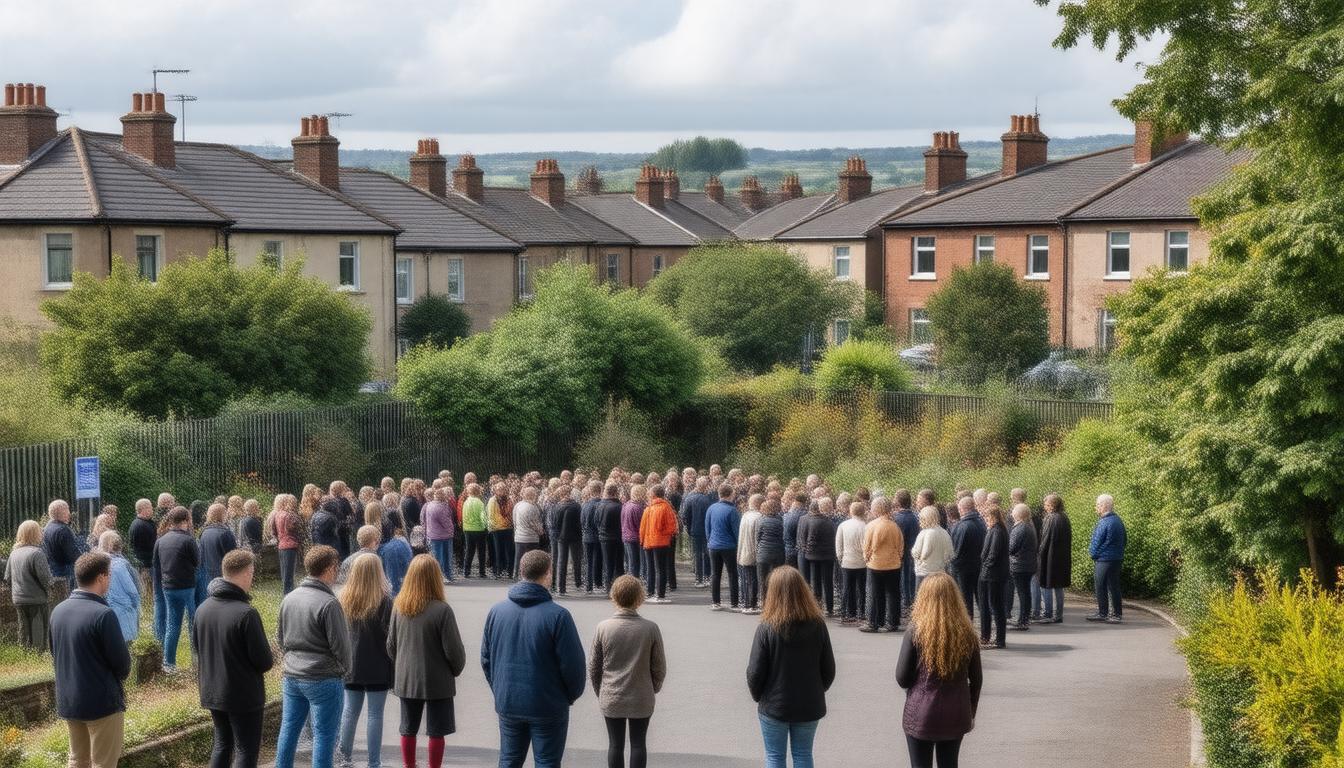In a recent decision by Belfast City Council, community concerns have taken precedence over planning recommendations as four applications for Houses of Multiple Occupation (HMOs) in north Belfast were rejected this year. Following significant local opposition driven by Sinn Féin representatives, the conversions have been turned down, highlighting a growing unease around the increasing number of HMOs in the area, particularly on Ponsonby Avenue, which saw its application for HMO status denied twice within six months. This decision indicates a strong response to local apprehensions regarding the impact of HMOs on the community, particularly in areas prone to anti-social behavior, such as the Holylands. The council’s stringent policies, which limit the number of HMOs to 20% in designated housing management areas and 10% in others, underscore the balancing act between urban development and community integrity amid rising tensions over parking, traffic safety, and waste management issues.
Key Takeaways
- Community backlash is significantly influencing the approval of HMO conversions in north Belfast.
- The Belfast City Council imposes strict limits on the percentage of HMOs in residential areas to protect community integrity.
- Concerns over anti-social behavior and infrastructure strain are central to the debate on HMO licenses in local neighborhoods.
Community Concerns and Opposition
In north Belfast, community concerns have sparked significant opposition to the conversion of four residential properties into Houses of Multiple Occupation (HMOs) this year, primarily driven by Sinn Féin. A notable case involved a property on Ponsonby Avenue, which was refused HMO status for the second time within six months, despite recommendations for approval from council officers. This trend of seeking new HMO licenses raises critical issues regarding community impact, particularly in neighborhoods such as the Holylands, where similar conversions have previously led to increased incidents of anti-social behavior (Belfast City Council, 2024).
Belfast City Council enforces strict policies that limit the number of HMOs to 20% in designated housing management areas and 10% in surrounding zones. Although the council’s planning reports suggested that the proposed HMOs met the required standards for amenity space, considerable community objections underscored the concerns. Residents highlighted issues including parking shortages, traffic safety hazards, inadequate waste management, the risk of anti-social behavior, and the potential erosion of community character linked to the high turnover of tenants (McCaffrey, 2024).
In addition to the recent refusals, a similar application was denied in April for a different property on Ponsonby Avenue, while another conversion request on Limestone Road also faced rejection, illustrating the growing tension between community concerns and housing policies in the area.
Council Policies and Their Impact
The ongoing debate surrounding HMOs in north Belfast underscores broader issues of urban planning and community preservation. Local residents have been vocal about their fears that an increasing concentration of these properties could fundamentally alter the character of their neighborhoods, turning them into transient zones rather than stable communities. These concerns are echoed by various stakeholders, including community groups and politicians, who argue for a more balanced approach to housing policy that takes into account the needs of both renters and long-term residents (Belfast Chamber of Commerce, 2024). Furthermore, the impact of rising HMO conversions has led to calls for more stringent regulations to maintain neighborhood integrity, suggesting that the current policies may require reevaluation to better serve the diverse needs of all community members.
Feel free to contact us via WhatsApp, social media, or email.
Always find the best rooms to rent & HMOs for sale in the UK at HMO Reporter.





